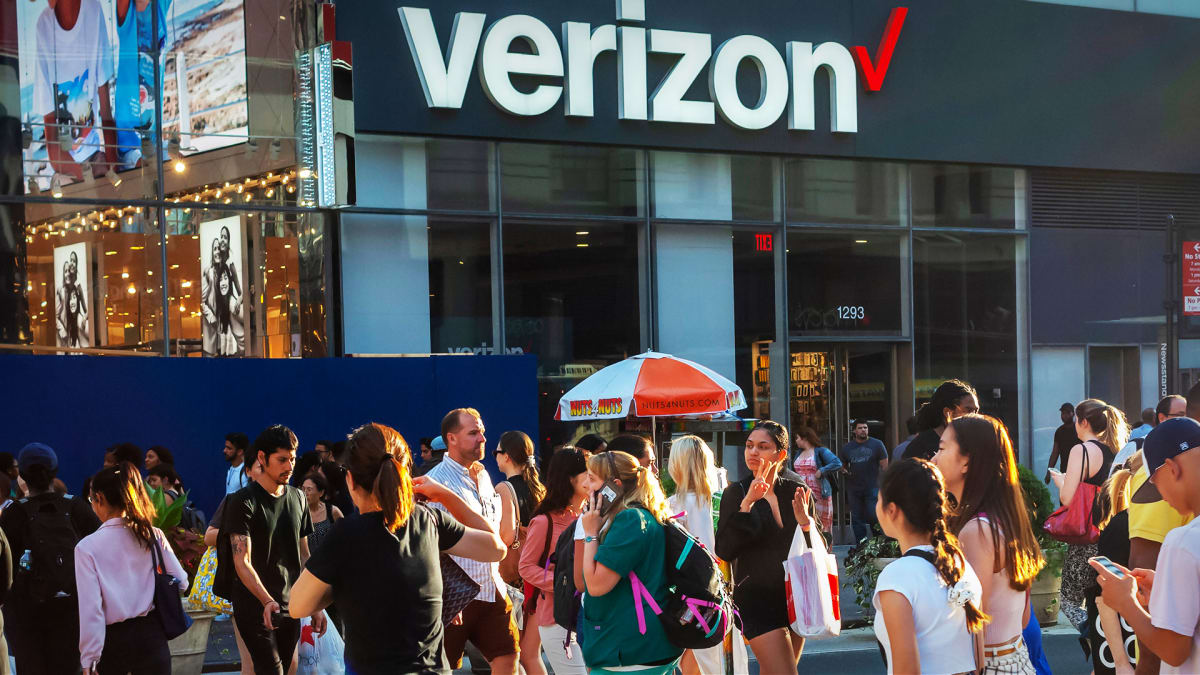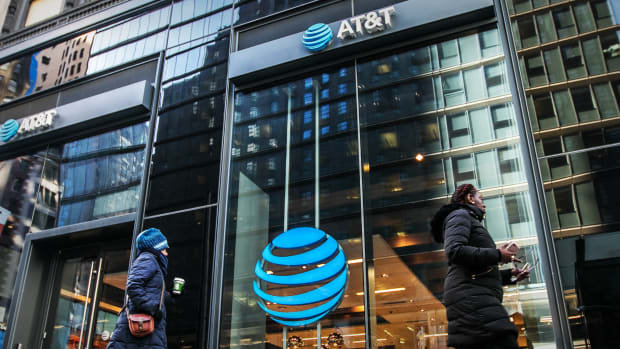
All three major wireless carriers make claims that they offer the best service.
That's partly because the term "best" has no legal standing, and when you look at the leading studies and reports on the industry, each player wins in certain areas.
While Verizon (VZ) might run a commercial based on its interpretation of data, T-Mobile (TMUS) and AT&T (T) might make similar claims by cherry-picking different points from the same dataset.
DON'T MISS: T-Mobile's Latest Move Gives Verizon, AT&T the Proverbial Finger
In many ways an argument about which company has a better wireless network is like a sports talk-show debate about whether Lebron James is better than Michael Jordan.
You can make a credible case for either player being the greatest of all time (and if you need to fill up airtime, you can add in Wilt Chamberlain, Bill Russell, or another old-time player to spice up the debate).
So when Verizon, AT&T and T-Mobile make ad claims based on actual data -- the sources are in the fine print at the bottom of the screen -- they can all claim to be the best, sort of.
What they can't do, at least according to voluntary standards adopted by most major advertisers, is make claims based on nothing.
That's essentially what AT&T charged when it challenged one of Verizon's sillier Christmas season ads.

Image source: Shutterstock
How Is the Ad Industry Self-Regulating?
Advertising is a hard field to regulate because some claims are facts while others are not based on data but are still acceptable. For example, you can't say Lucky Charms is the best-tasting cereal but you can call it "magically delicious.'
That's not an easy standard to enforce, so the U.S. advertising industry has voluntarily engaged a way to decide which claims can be made in ads.
The U.S. advertising industry founded the National Advertising Division (NAD) and the National Advertising Review Board in 1971 as a system of independent industry self-regulation to build consumer trust in advertising and support fair competition in the marketplace. NAD holds national advertising across all media types to high standards of truth and accuracy by reviewing truth-in-advertising challenges from businesses, trade associations, consumers, or on its own initiative. NAD’s case decisions represent the single largest body of advertising law in the country.
When one member challenges an ad claim made by another member, the NAD makes the original decision. Then either party can challenge the ruling to the National Advertising Review Board, the appellate body for the U.S. system of advertising industry self-regulation.
"Five-member NARB panels hear cases appealing an NAD or [Children's Advertising Review Unit] decision and provide independent industry peer review, ensuring truthfulness and accuracy in national advertising and helping promote voluntary compliance of its decisions—a key pillar of industry self-regulation," according to its website.
And in the case AT&T brought against Verizon, the NARB panel upheld the decision that Verizon's ad was "puffery." In other words, AT&T lost the case.
Verizon's Scrooge Ad Declared 'Puffery'
Last holiday season, Verizon ran an ad called "'Tis the Season," featuring the well-known actor Paul Giamatti as the Charles Dickens character Scrooge.
That appearance made fans of Giamatti question his choices and wonder whether he had financial troubles. But in any event his performance featured him complaining to former "Saturday Night Live" star Cecily Strong that he can “barely get reception. ...” In response, Strong recommends that he “need[s] a better network. Tis the season to switch to Verizon.”
An NARB panel determined that VZ's use of the phrase “you need a better network” in the context of the “Tis the Season” television commercial was puffery. That reversed an earlier NAD decision where the group recommended that Verizon discontinue the claim “you need a better network.”
And while "puffery" seems like a bad thing, that's actually not the case for Verizon here.
Verizon appealed NAD’s recommendation that it discontinue the claim “you need a better network” on the grounds that it was puffery. Verizon argued that "the challenged claim did not reference AT&T or any other carriers and was nothing more than a playful, spendthrift-themed vignette that builds up to Verizon's ‘Free 5G Phone’ offer."
The NARB panel agreed.
"A majority of the NARB panel concluded that in the context of the 'Tis the Season' commercial, the phrase “you need a better network” did not convey a superiority message, thus upholding Verizon’s puffery position."
Verizon stated that it was “pleased with the panel’s decision.”
Action Alerts PLUS offers expert portfolio guidance to help you make informed investing decisions. Sign up now.







